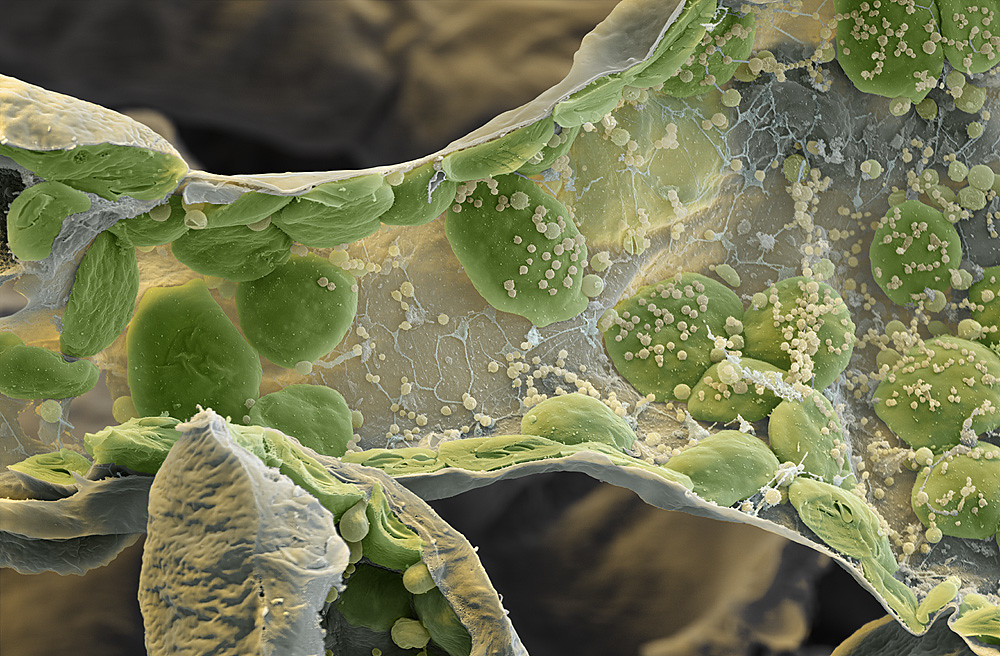Have you ever wondered how new ideas can help people in the developing world? Are you interested in what Cambridge can do to help? If so, the Centre for Global Equality Development i-Teams programme is for you!The University of Cambridge SynBio SRI has put forward a synthetic biology-based project for the Development i-Teams Michaelmas 2016 'Exploring potential global health applications of cell-free extracts for rapid, low-cost, paper-based diagnostics', mentored by OpenPlant Fellow Dr. Fernan Federici. Find more information and how to apply below!
Global health applications of cell-free extracts for rapid, low-cost, paper-based diagnostics
Researcher : Dr. Fernan Federici, Plant Sciences, University of Cambridge and Pontificia Universidad Catolica de Chile
In vitro synthetic biology uses cell-free extracts from bacteria or other organisms to which DNA sequences encoding genetic circuits with useful functions are added and expressed. For example, a molecular sensor for Zika viral RNA or a pollutant heavy metal could be designed to produce a signal that regulates output of a measurable response, like high levels of a coloured chromoprotein. Beyond this simple example, DNA-encoded ‘logic gates’ could be constructed that respond in different ways to particular combinations of inputs or provide quantitative results.
Recent work combining this emerging technology with paper-based microfluidics has delivered rapid, low-cost paper tests for Ebola and Zika Virus and small molecule sensors such as glucose assays, which are stable in dried form for at least one year. As no genetic modification is involved, and a fully equipped lab is not required once the cell-free extract is produced and stably dried down, this technology is far more accessible to researchers in low-resource settings than in vivo synthetic biology. The initial cost of engineering biosensors is lowered very significantly.
The potential applications of this technology are directly relevant to diagnosing health and environmental problems faced by people developing countries. Many such problems pose significant challenges to their welfare and economic development e.g. pollution, tropical infectious diseases, animal disease, soil health. By promoting the development of a low-cost, low-resource technology platform the intention is to build capacity in-country for prototyping solutions to challenges identified as priorities locally.
The inventor of the technology, Dr. Fernan Federici, is working on open technologies including hardware and DNA parts that would further increase the ease and suitability of these cell-free systems for research, development and applied use in the global South. With reduced IP encumbrance, it is hoped that knowledge transfer can be accelerated and barriers to access reduced.
The Development i-Team will need to investigate two separate questions relevant to this technology.
First they will investigate the likely applications of paper-based synthetic gene networks in the developing world, and in particular will need to identify areas where local problems are not addressed by existing solutions and there is scope for developing local capacity for research in this area.
Secondly they will explore the commercial implications of building diagnostics based on open technologies that are freely shared and not protected by patent. How does this make a difference in the global South? How does it alter the typical value chain for such technologies? Could open approaches confer benefits in terms of access for the bottom three billion and in what contexts? In particular, are there any mechanisms of sharing IP with the local community which is directly affected by the problem?
More information on Development i-Teams and how to apply
The Centre for Global Equality and i-Teams are running the "Development i-Teams" programme for the fourth time this Michaelmas term. Teams will investigate ways in which real Cambridge innovations could be used in the developing world to improve people’s lives in a sustainable way.
This term’s projects are:
- Establishing sustainable community cloud infrastructures in the developing world;
- Exploring potential global health applications of cell-free extracts for rapid, low-cost, paper-based diagnostics;
- Farming and processing microalgae to address Vitamin B12 deficiency.
Development i-Teams is open to all students (undergraduates and post-graduates), post-docs and staff, as well as all members of the Centre for Global Equality - anyone with an interest in how technology can make the world a better place for the world's poorest.
The course runs on Tuesday evenings from the 18th of October to the 22nd of November, and there will be approximately 4 hours of individual work needed each week, mostly involving gathering real-world feedback from experts in international development.
For more details and to apply for a place on a team, see http://iteamsonline.org
For more information about the work of the Centre for Global Equality see http://centreforglobalequality.org

![[Closes 24 Nov 2107] Apply now to the OpenPlant Fund!](https://images.squarespace-cdn.com/content/v1/54a6bdb7e4b08424e69c93a1/1509564315902-TUO4I6QRWI9TT8UGSIAJ/OpenPlantTwitter_400x400+%281%29.jpg)

![[Closes 7 Mar 2017] OpenPlant Research Associate (Haseloff Lab)](https://images.squarespace-cdn.com/content/v1/54a6bdb7e4b08424e69c93a1/1486552818859-FH76MCA8SMFU93WB85RX/OpenPlantTwitter_400x400.jpg)


